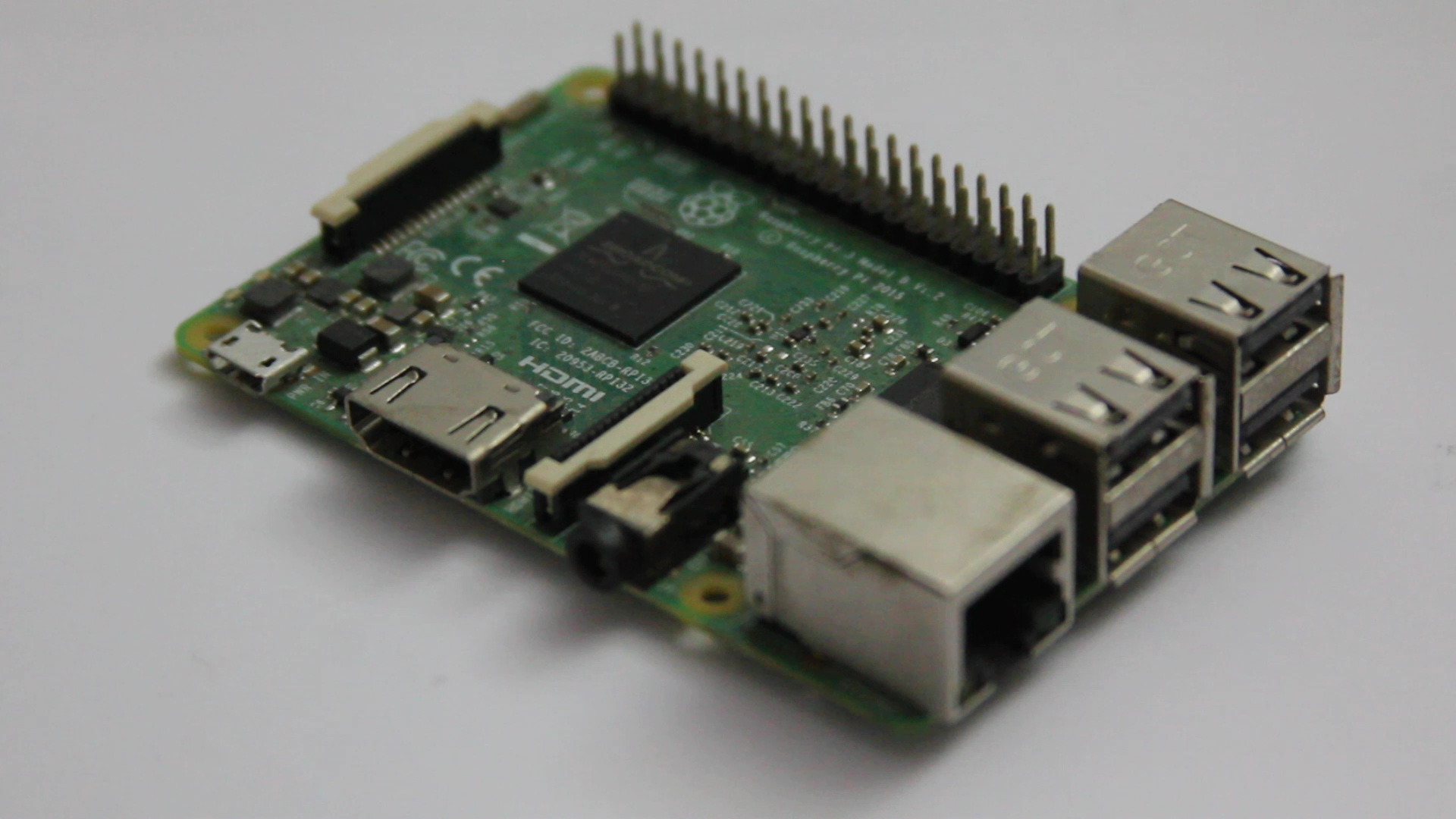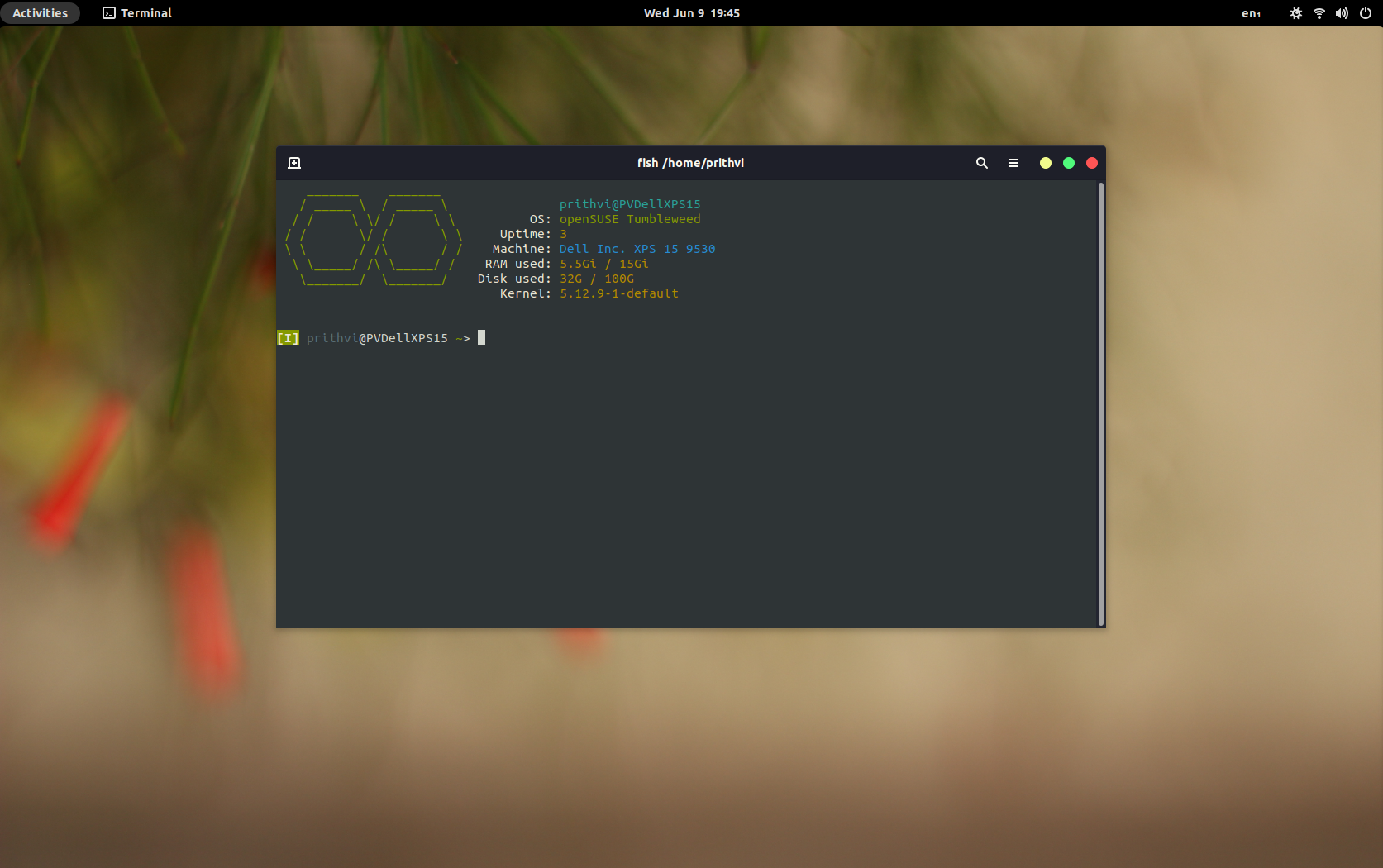My Linux Story
By Prithvi Vishak
Created June 9th, 2021
Hmmm. Now that I think about it, I find it hard to put in words. I'll do my best to explain my thoughts, though it may become a bit of a ramble. You have been warned.
The Dark Ages
One day, back in 2014 (fourth grade), my parents asked me if I wanted a computer. I said yes. So, my dad hooked up our spare 2010 mac mini to a monitor, keyboard, and mouse we had lying around. That was that. I used Mac OSX because it was on there. I mean, I was in fourth grade. I barely knew what an operating system was.
Fast-forward to about sixth-grade, and I had gained an interest in electronics. That meant that among the LEDs and buttons and breadboards cluttering my desk, there was a Raspberry Pi. And Raspberry Pis run Linux. That was my first exposure to Linux. I didn't really care that I was running it, I just wanted my python and scratch programs to run, and maybe check my email while I was at it. I remember blindly typing commands into a terminal to get someone else's really neat code to work on my Pi, but of course, it spat out errors I didn't understand, and couldn't bother to look up.

Raspberry Pi
I didn't really hold these errors against "Linux", but I did grow increasingly proud of being a mac user. A friend ran Windows on his computer, and it was really, really slow. I thought that my mac was better. I liked using Apple Maps and Safari, and iTunes to put music on an old iPod we had lying around. As further time went on, the old Core 2 Duo machine started running warmer than usual. I even remember it being warm when it was asleep (botnet?). But I continued to work in my usual blissful, one could even say "normie" manner. The machine would freeze up sometimes. It would reboot, closing all my apps, but that wasn't too annoying.
The Rennaissance
In the great pandemic of 2020, some of this started to change. Among other things, I switched to the Firefox browser because it was supposedly open-source and more privacy-conscious. We were also required to use Zoom for school, a video calling platform of somewhat dubious repute. My dad and I started looking for a way to use it without exposing it to our home network.
Eventually, we decided to use it on a half-broken Android phone connected to a cellular data network. This worked fine, until classes got more intense and required the use of a device with a larger screen. This, to us, meant that we had to put it on a computer. Articles about the newest Ubuntu release at the time, 20.04, had caught my dad's eye, and he decided that we would put this supposedly more secure "Linux" onto our tower computer.
My dad had told me of these things called "distributions" or "distros", which were like spins or flavors of this Linux. The first distro we tried was elementaryOS, which looked rather nice. After some fumbling about trying to install Chrome, my dad gave it up and we went for Pop!_OS to give Linux one last shot. For reasons I do not remember, Chrome installed easier on this distro, Zoom was available in its app store, and I was attending class on it without an issue.
Of course, I still used good ol' macOS on my computer, but Pop!_OS's goodies began to charm me. I found I could use those same, convenient commands I used on the Pi, and to a lesser extent the mac, to get things done.
Installing software was a breeze with apt and the Pop!_Shop. What I later learnt to be the GNOME desktop was very pretty, yet functional and unintrusive. I couldn't live without virtual desktops and quick tiling anymore.
And the speed. The sheer speed. Sure, that PC was kitted out with an i7 and 16GB of RAM, but if Linux could get my trusty silver box anywhere near as fast as this was, I would switch to it without batting an eyelid.
Modern Times
When my dad popped the question about whether I wanted to give Linux a try, I agreed. My dad suggested dual-booting with macOS, so we looked up how to do that. Uh oh. That didn't look so easy.
The steps themselves actually were. Partition your disk, boot to a thumb drive with Fedora on it, choose "Manual Partitioning" in the installer, and assign it the partitions you created. Partitioning the disk from OSX's Disk Utility supposedly failed, all three times we tried it. It just refused to reformat the new partition. But, it showed a new APFS partition, so we went ahead with the installation anyway, formatting the partitions from Fedora instead.
I initially thought that this was an isolated incident, but I later found that Disk Utility failed in a similar situation on a newer mac. Shocking coming from Apple. One can only wonder why such an issue was never fixed...
Anyhoo, I digress. Fedora took 15 minutes to install. And it was great. Everything was smooth and snappy. By this time, school had switched to using Microsoft Teams, and it's well known that Teams is a rather heavy Electron app. Even that launched faster. The only complaints I had were with some minor screen-tearing, which was easily fixed by installing the proprietary NVidia driver (Sigh), and with Beats headphones. Apparently, Beats by Dre is actually Apple Beats Incorporated. Enough said. I got them working eventually, though.
Of course, the Linux superiority complex set in after a few weeks of use. Not a week would go by without me trying to sell (figuratively, of course heh heh) Linux to my friends. A fellow contributor to this site, Eeshaan, was the first person I converted. Windows was slow (duh) for him, and he expressed an interest in trying Linux after my incessant praise for it, eventually starting off with Ubuntu.
I gave a presentation on Linux in computer science class once, but it wasn't all that well received. Earlier this year, Eeshaan and I tried hosting our own Linux Install Fests to introduce Linux to others, and persuade them to at least try it from a thumb drive. This converted one person, and got a couple people amused. That is the extent of my "contribution" to the Linux and open-source community so far.

openSUSE Tumbleweed, my current distro of choice
I find the community to be vibrant, to say the least, and helpful. Though it is divided on certain technicalities and esoteric points, there are plenty of people ready to help and spread the word about Linux and free software. I like being part of this community, though limited my reach has been thus far. Of course I like free software, and use it wherever I can.
Free software is perfect for a person of my interests because you can tinker with it, customize it, learn from it. I suppose this is the meaning of "free as in freedom", where software is limited only by imagination and initiative.
Conclusion
Using Linux has given me a great deal of technical knowledge, and insight into how freedom in software can lead to the formation of a community committed to the betterment of an ecosystem as a whole.
What is your Linux story? Maybe you could write about it.